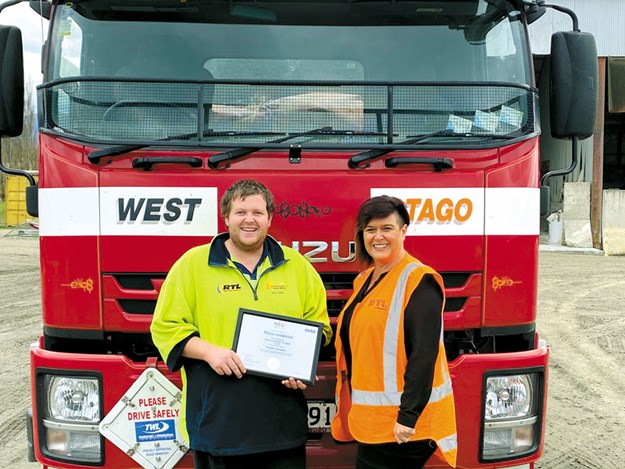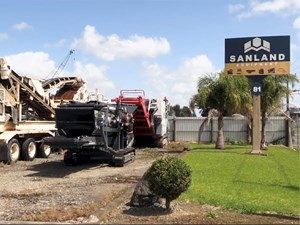Comment: Liftings standards critical to Road to success
The NZ trucking industry needs to lift safety and compliance standards and address the sometimes unreasonable pressures exerted on the industry
 |
|
Fiona and Road to success trainee Hayden Cockburn
|
Competition for qualified drivers is increasing, and this has resulted in a lot of small operators (who make up about two-thirds of the industry) having trouble attracting and keeping staff.
The transport industry has always been highly competitive with businesses operating on low margins. This traditionally has had a major impact on our workforce but as has been identified in high-profile cases recently, it also manifests itself through non-compliance.
The Road Transport Forum has and will always promote an industry of high safety standards and does not condone operators and drivers who are deliberately, or negligently, non-compliant with transport and safety laws.
However, we’re aware that anything that has an impact on delivery times has a direct impact on profit, and for some, there’s the temptation to do what it takes to get the job done, even if that means breaking the law and skimping on safety.
Because of the chain of responsibility and new health and safety obligations, it’s not just your employer or client who has an influence over you and your safety and how you go about your job; it’s all the other people you deal with in the supply chain.
RTF is, therefore, working to gain support from the Government for an industry accord that takes these external factors into account and can help ensure a future industry that’s safe, compliant, and attractive to those young people looking for their next career move.
RTF is also responding to the changing labour market through our industry training programme, Te ara ki tua Road to success. For Road to success to ultimately be successful, we know that, as an industry, we need to lift safety and compliance standards and address the sometimes unreasonable pressures exerted on us.
There’s a bit of a misunderstanding that our labour problems are merely down to a shortage of drivers. While truck drivers may be the most visible part of the transport industry, there are many other roles in different areas of the industry that are also in high demand.
A dispatcher is responsible for freight while it is with the company for transport. They take orders and send truck drivers to collect and deliver goods. Their role involves choosing the right truck and driver for the job. For instance, ensuring dangerous goods are carried by a suitably licensed driver in a vehicle that’s safe to carry them.
Office administrators keep the office running smoothly and check that freight has been measured correctly, while logistics planners coordinate the shipping and receiving of goods and people. The role of a logistics planner can overlap with a dispatcher, but they also work with freight coming from, or going to somewhere outside the company.
A transport manager oversees the work of getting freight and people from one place to another. They manage budgets, organise schedules and routes, and ensure vehicles are safe and meet legal requirements, and that drivers are aware of their duties.
Some companies also have their own workshops and employ technicians to repair and maintain the company’s vehicles. Some of these roles are classed as back office because they take place behind the scenes, but they are vitally important for keeping a transport business running. At the end of the day, it’s about providing pathways into the various career opportunities that our industry provides and finding the right people for the job.
More information on Te ara ki tua Road to success and how prospective trainees and operators can join the programme is available at roadtosuccess.nz.
Find new and used trucks for sale in NZ
Keep up to date in the industry by signing up to Deals on Wheels' free newsletter or liking us on Facebook.





.jpg)


.jpg)


-(1).jpg)

-(1).jpg)
.jpg)
.jpg)

